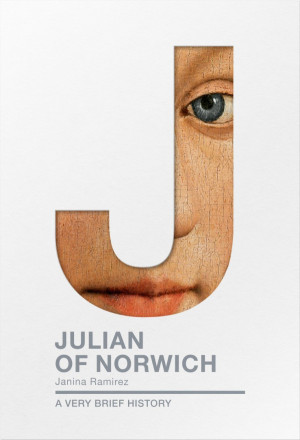How to Have Hope
Aaron Lewendon - Eden Bibles & Bible Study Specialist
Julian of Norwich and How to Have Hope
“All shall be well, and all shall be well and all manner of things shall be well.”
Right now, those words may feel a little empty to you. It’s hard to see how all things will, in the end, be well. Not right now, anyway. But it is worth noting who wrote this, when she lived, why she wrote it, and what that means for us today and in the immediate future.
A Christian Mystic and Anchoress, Julian of Norwich was born in late 1342 and is celebrated as the author's earliest surviving book written in English by a woman. Titled Revelations of Divine Love, the book is a series of reflections written after a night of visions she had whilst severely ill. It features little-to-no discernable details about its author. Rather, it reflects upon the nature of God and the act of contemplation through its centring on the Passion of Christ.
Filled with many esoteric passages and vivid imagery, the book offers a powerful depiction of God’s love and grace.
Also, it was written during the Black Death.
Arriving in England when Julian was just seven years old, the Black Death was one of the most devastating pandemics to hit Europe. The extent of its toll was so great that it took 200 years for the population of Europe to recover to its previous level.
The presence and effect of the Black Death were felt everywhere in England at the time. This is especially true for Norwich, where Julian spent her entire life.
For a long period of time, Norwich was the second-largest city in England (today, that title belongs to Birmingham). A bustling, cosmopolitan city, Norwich’s long history and relatively close proximity to London made it a significant marketplace for trade in England. The wealth generated helped contribute to the building of many churches in the town, one of which was where Julian sequestered herself for most of her life.

In ‘Julian of Norwich: A Very Brief History’, Janina Ramirez describes the cell where Julian stayed:
“It was on the main thoroughfare through Norwich, close to the docks and also the ‘red-light district’. Her curtained window offered people the opportunity to speak with her, confide in her, and learn from her.’
Julian was not a woman removed from the world around her. She was not ignorant of the devastation of the Black Death, and she even wrote vivid descriptions of the bodies that lay on the ground.
How then, can she live through the Black Death and still write a book of such deep optimism?
How can she write that “All shall be well”?
She isn’t writing from a place of denial, for starters. Her writings frequently move between sorrow and hope, seeing both how God is present in all things as well as witnessing images of Jesus’ own death on the Cross. Towards the end of the visions which became her Revelations, Jesus promises her suffering shall end and that she will go to heaven.
One powerful image to take away from Revelations of Divine Love is that of the hazelnut:
“And in this he showed me a little thing, the quantity of a hazelnut, lying in the palm of my hand, it seemed, and it was as round as any ball. I looked thereupon with the eye of my understanding, and I thought, 'What may this be?' And it was answered generally thus: 'It is all that is made.' I wondered how it could last, for I thought it might suddenly fall to nothing for little cause. And I was answered in my understanding: 'It lasts and ever shall, for God loves it; and so everything has its beginning by the love of God.' In this little thing I saw three properties; the first is that God made it; the second is that God loves it; and the third is that God keeps it.”
That everything begins with God’s love and ends with God’s love is the ultimate hope. We need never be far from it, a sentiment more recently echoed by the worship group Bethel Music on their song Starlight:
There's no heart unseen
There's no space between
You and I, You and I
You are closer than
The air I'm breathing in
You and I, You and I
You are here with us
Emmanuel, Emmanuel
You are infinite
Your glory has no end
Jesus, Jesus
That Julian of Norwich can write “All shall be well” at a time when the world seemed anything but well is a testament to her deep belief in God. In her Revelations she saw a God who outlasted all things but still cared for a world that would seem as small as a hazelnut to Him.
Julian wrote that “The greatest honour we can give Almighty God is to live gladly because of the knowledge of his love.” Right now living gladly feels like the last thing we want to do. But as a first step, we can try to remember that God’s love is something we can put our faith in with confidence and hope.
To learn more about the fascinating life of Julian of Norwich, Janina Ramirez’s Very Brief History is available to order today.
Discover some of the brilliant Christian books and resources to help guide you in Self-isolation.
Return to the list of practices for Christians during Coronavirus: https://www.eden.co.uk/blog/7-practices-for-christians-during-coronavirus-p1784105
Latest Blogs

Gifts
Finding Your Symbol of Faith: A Guide to Christian Cross Necklaces
Looking for the perfect symbol of faith? Explore our guide to Christian cross necklaces, from rustic wooden designs and sturdy men's chains to elegant silver pendants.

Gifts
The Best Christian Gifts for Under £20
Looking for a meaningful gift that won't break the bank? Explore our guide to the best Christian gifts under £20, from inspiring journals to beautiful home decor.

Gift Guide
15 Confirmation Gift Ideas for Boys and Girls
Celebrating a confirmation? Discover 15 meaningful gift ideas for boys and girls, from youth Bibles and jewellery to inspiring journals and keepsakes.

Bible
30+ Powerful Quotes About the Bible (For Inspiration in 2026)
Looking for inspiration? Discover a curated collection of the most powerful quotes about the Bible, from famous historical figures to modern theologians and Scripture itself.

Bibles
What is the "Standard" Bible for Christians?
Is there an "official" Bible that all Christians use? We explain the difference between the NIV, KJV, and ESV, and help you find the standard text for your church or personal reading.

Bible
"I Keep Failing to Read the Bible" – 5 Tips to Make the Habit Stick
Do you start a Bible reading plan only to quit a few weeks later? Stop the cycle of guilt. Here are 5 psychological tips and practical changes to help you build a Bible habit that actually lasts in 2026.
